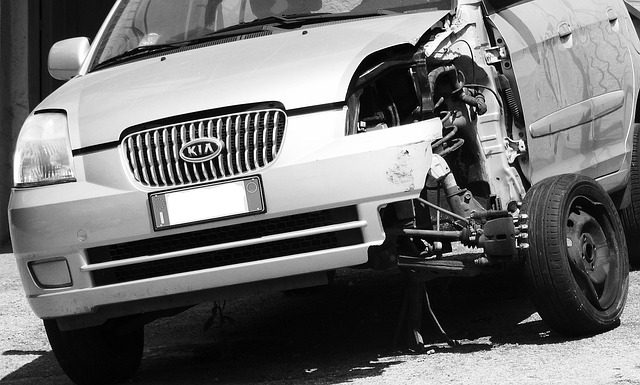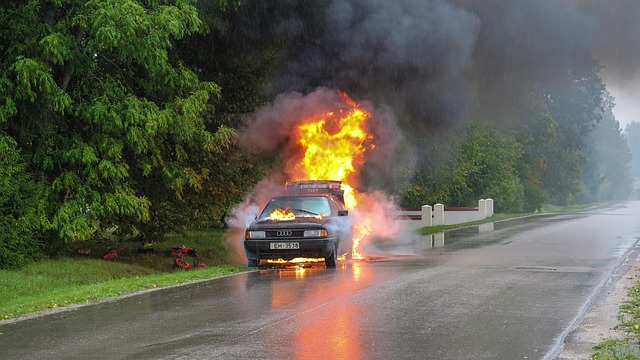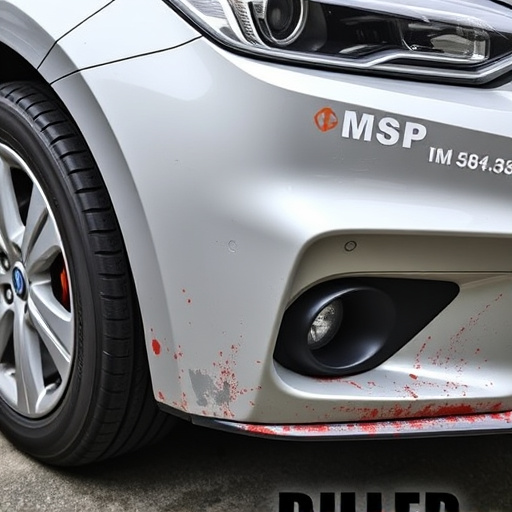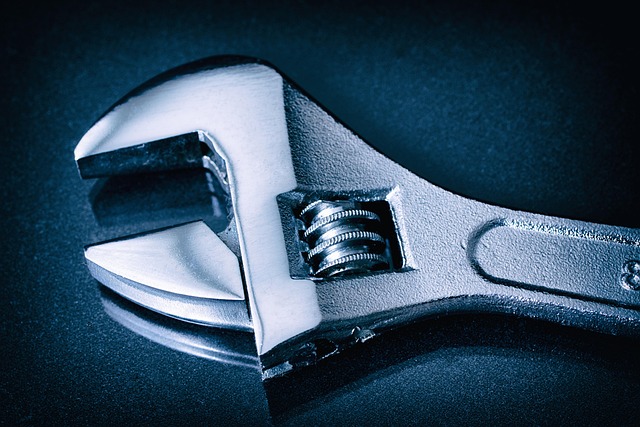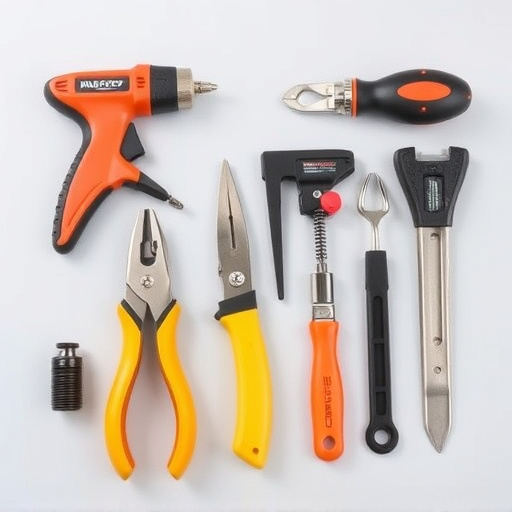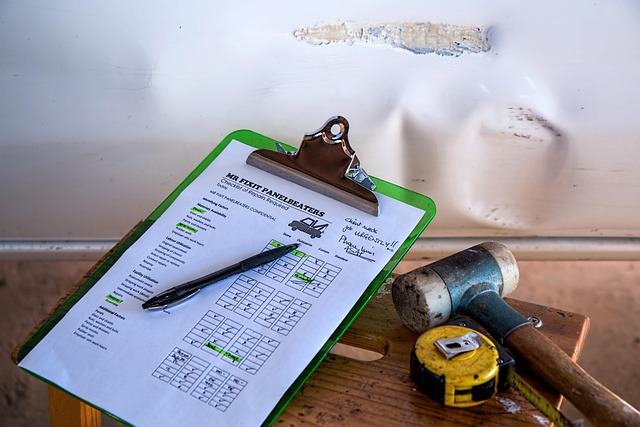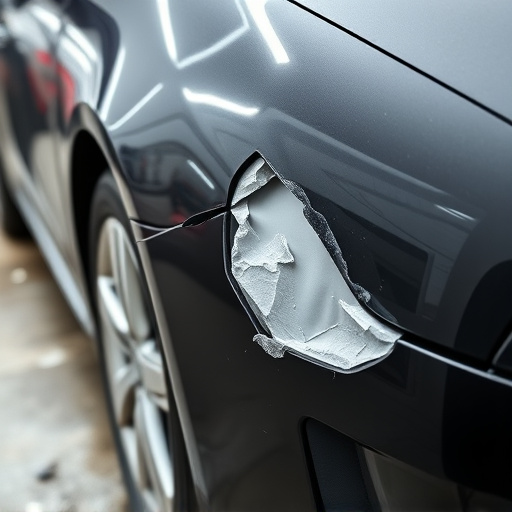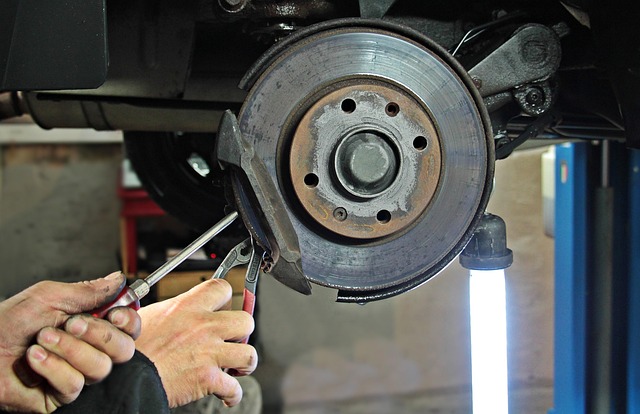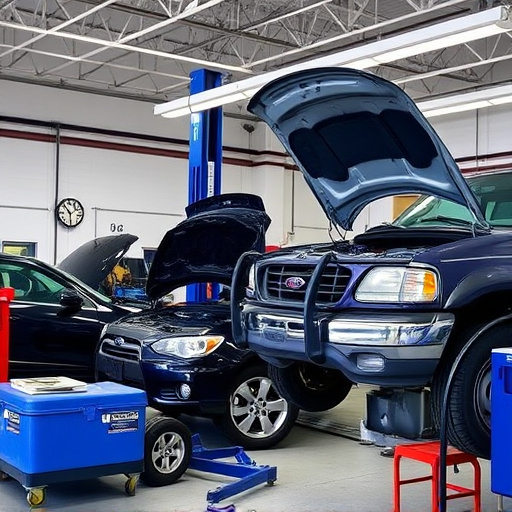Specialized skills and knowledge are crucial for effective electrical system crash repair, focusing on safety and vehicle function. Comprehensive training strategies involving theoretical knowledge, practical experience, interactive workshops, and advanced tools prepare staff to handle modern automotive electrical components. Continuous learning ensures technicians can successfully implement skills in real-world scenarios, improving quality, customer satisfaction, and success rates for repairs including Mercedes Benz models with dents or cosmetic issues.
In today’s automotive landscape, proficient electrical system crash repair is paramount. As vehicles become increasingly complex, staff training plays a pivotal role in ensuring effective and efficient repairs. This article delves into the essentials of electrical system crash repair, explores comprehensive training strategies, and provides insights on optimizing skills post-training for maximum success. By understanding these key aspects, professionals can enhance their capabilities and deliver superior service.
- Understanding Electrical System Crash Repair Essentials
- Comprehensive Training Strategies for Staff Preparation
- Optimizing Skills: Post-Training Implementation and Success
Understanding Electrical System Crash Repair Essentials
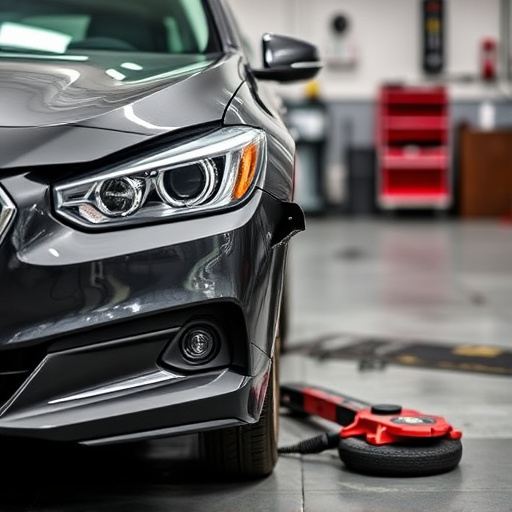
Crash repairs involving electrical systems require a unique set of skills and knowledge. With modern vehicles becoming increasingly complex, understanding the intricate interplay between components is crucial for effective car bodywork services. Electrical system crash repair goes beyond fixing dents and scratches; it entails addressing potential safety hazards and ensuring the restored vehicle functions optimally.
Training staff to handle such repairs involves teaching them to diagnose and replace faulty parts while minimizing disruptions in the overall electrical network. This includes learning about advanced diagnostic tools, safe disposal of hazardous materials, and adhering to strict protocols for collision repair. Proficiency in car damage repair techniques is essential to restore vehicles to their pre-accident condition, ensuring both safety and customer satisfaction.
Comprehensive Training Strategies for Staff Preparation
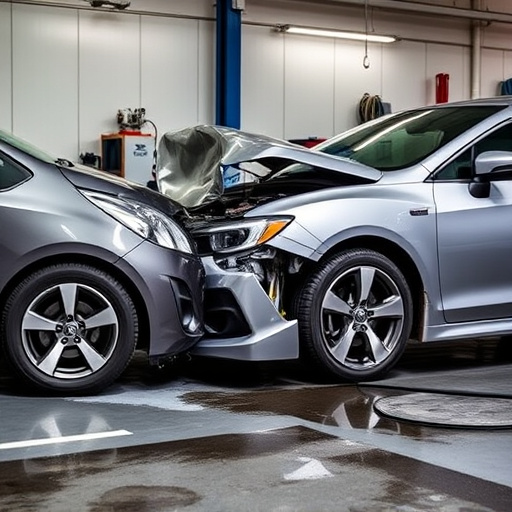
Effective electrical system crash repair requires staff that are thoroughly prepared through comprehensive training strategies. This involves a multi-faceted approach to ensure every team member understands the intricacies of modern automotive electrical systems. Training should cover not only theoretical knowledge but also hands-on experience in diagnosing and repairing various components, from sensors to control modules. Interactive workshops, simulations, and real-world case studies can significantly enhance learning outcomes.
Incorporating advanced training methods such as virtual reality and digital diagnostics tools can better equip staff to handle complex electrical system crash repairs. Additionally, regular updates on industry standards and technological advancements in automotive body work, including bumper repair and other auto repair services, are vital. This continuous learning ensures that the team remains skilled and prepared to offer top-notch electrical system crash repair services.
Optimizing Skills: Post-Training Implementation and Success
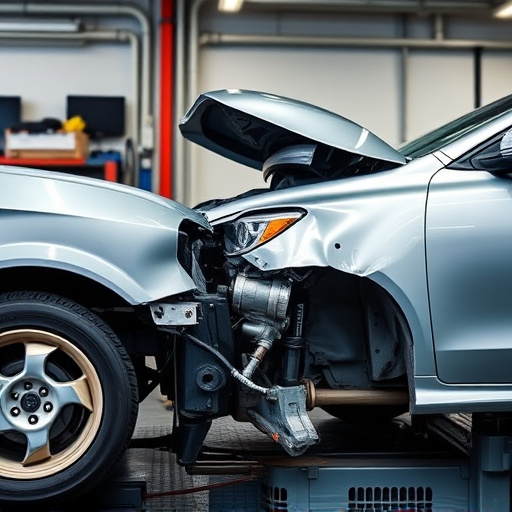
After completing specialized training for electrical system crash repair, the real test lies in putting skills to practice. Successful implementation post-training is key to ensuring high-quality services and customer satisfaction. Technicians must seamlessly translate their newly acquired knowledge into practical solutions, especially when dealing with complex vehicle issues like those often seen in automotive brands such as Mercedes Benz repairs.
Effective training programs equip staff with not just technical proficiency but also problem-solving strategies. This enables them to handle various challenges that arise during electrical system crash repair, be it minor glitches or major failures. By fostering a culture of continuous learning and emphasizing practical application, the success rate for repairing vehicles, including those with dents and other cosmetic issues similar to those encountered in vehicle dent repair services, significantly improves.
Training staff for effective electrical system crash repair services is a pivotal step in ensuring swift and safe vehicle restoration. By understanding the essentials, employing comprehensive training strategies, and focusing on post-training implementation, organizations can optimize their skills and deliver high-quality repairs. This focused approach not only enhances customer satisfaction but also positions businesses as leaders in the field of electrical system crash repair.

